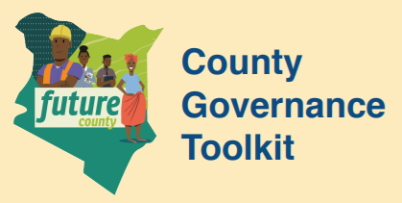| Government Institutions | Non-State Actors (NSAs) | Professional Associations and Institutions |
| Academic Institutions | Private Sector Consultants | Development Partners |
While most national government ministries, state departments and agencies have the mandate to build capacity of county government, the following are institutions with specific core training mandate for county governments.
Kenya School of Government (KSG)
The Kenya School of Government (KSG) is a state corporation established by the KSG Act (No. 9 of 2012) to offer management training, research, consultancy and advisory services to the public sector. It offers services to National and County governments, Non-Governmental Organisations (NGOs) and the private sector.
KSG’s role is to provide learning and development programmes to instil public service values and ethics; and develop core skills and competencies for quality service delivery in the devolved government for the delivery of results to the Kenyan citizenry. The School has Centres of Excellence including The Centre for Devolution, Centre for Public Finance, Centre for Public Service Values and Ethics, among others.
KSG aims at contributing towards the transformation of the public service into functioning effectively, innovatively, and in a results-oriented and accountable manner. The School offers certificate, diploma, undergraduate and post-graduate studies with campuses in Nairobi, Mombasa, Matuga, Baringo and Embu and an E-Learning and Development Institute.
Learn more about KSG
Kenya School of Revenue Administration (KESRA)
Kenya School of Revenue Administration (KESRA) is the Kenya Revenue Authority (KRA’s) training school specializing in Tax and Customs Administration, Fiscal Policy and Management. The School offers certificate, diploma, undergraduate and post-graduate studies with campuses in Nairobi and Mombasa.
Learn more about KESRA
Centre for Parliamentary Studies (CPST)
The Centre for Parliamentary Studies and Training (CPST) was established by the Parliamentary Service Commission (PSC) in 2008 and provided for in the Parliamentary Service Regulations, 2011 (Kenya Gazette, Subsidiary Legislation, and Legal Notice No. 95 of July 22, 2011). The Centre’s purpose is to serve as a one-stop specialised Resource Centre for the training and capacity development of members and staff of Parliament of Kenya, County Assemblies and other Legislatures.
CPST’s mission is to enhance the capacity of members and staff of Parliament, legislative assemblies and other stakeholders for effective and efficient execution of their mandate, roles and functions in democratic governance.
It’s objectives and mandate extend to serving other stakeholders who may be interested in gaining understanding of Parliament and it also serves the Parliaments of the East African Community, the Great Lakes Region and the Continent of Africa at large and other global Parliamentary institutions.
Learn more about CPST
Non-State Actors (NSAs) play an important role in developing skills and capacities of the public sector and civil society on county governance processes. NSAs include national and international non-profits, trusts, think-tanks, research foundations, non-governmental organisation (NGOs) and Community-based Organisations (CBOs); as well sub-national, county-based NGOs and CSOs. NSAs are often funded by donors to undertake specific capacity development initiatives.
The following is a list of institutions which undertake capacity development interventions in support of democratic governance, devolution and/or have specific sector and service delivery focus and often collaborate and work in partnership with government. This is not an exhaustive list.
Democratic governance and civic engagement
- Uraia - National Civic Education Programme
- The Institute for Social Accountability (TISA)
- Transparency International
- National Taxpayers Association
County Public Expenditure Management
Policy and legislative development
Professional associations and institutions offer continuing education and tailored courses relevant to developing new and/or reorienting existing expertise, skills and competency of professional involved in devolved governance and service delivery.
- Institute for Certified Public Accountants, Kenya (ICPAK).
- Institute of Internal Auditors Kenya (IIA).
- Law Society of Kenya (LSK).
- Kenya Institute of Planners (KIP)
- Kenya Institute of Management.
- Evaluation Society of Kenya (ESK)
Several public and private Kenyan academic institutions offer relevant degree programmes and courses at undergraduate and post graduate level including on public administration, public policy development, institutional reform, political science, sociology, law, local participatory governance and service delivery, economics, local economic development. To name a few:
- Egerton University
- Institute of Development Studies
- Kenyatta University
- Moi University
- Mount Kenya University
- St. Paul’s University
- Strathmore University
- The Catholic University of East Africa
- United States International University (USIU)
- University of Nairobi
There are several private sector independent individual consultants and consultancy firms that provide capacity development services to the public sector and civil society in Kenya on public sector governance, democratic governance and civic engagement. Over the years of the AHADI project implementation, the project worked with and supported the development of individual Kenya experts in public sector institutional reform, local participatory governance and service delivery.
There are several development partners funding public sector reforms and cover capacity development for devolved participatory governance and service delivery. The following is an indicative list.
Bilateral
- Government of the United States of America. USAID East Africa
- Government of the United Kingdom, Foreign, Commonwealth and Development Office (FCDO) (formerly known as DFID)
- Government of Sweden. Sida
- Government of Norway
- Government of Finland
- Government of Denmark. DANIDA
- Kingdom of Netherlands
- Federal Government of Germany
- Government of Switzerland. (SDC)
